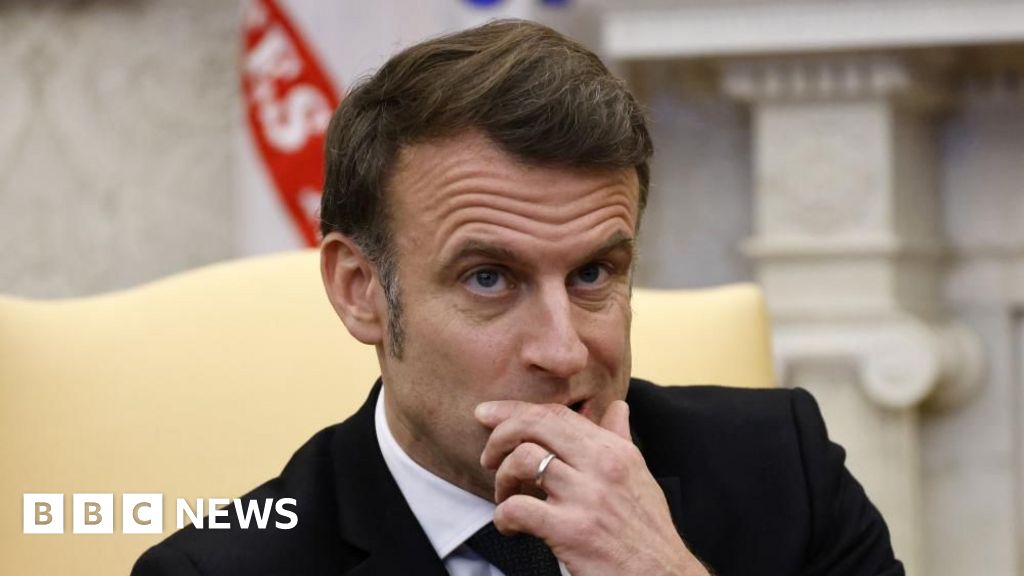Relations between Europe and the US are unquestionably in crisis, so merely keeping things together as French President Emmanuel Macron did at the White House on Monday stands as an achievement.
He did that by praising, flattering and gently cajoling the US president as they took questions in the Oval Office and held a joint news conference. This is a playbook that many leaders around the world now see as more productive than outright plain speaking or criticism of Trump.
Macron managed to navigate what could have been a tricky day in Washington without conceding or revealing too much.
He spoke of both countries wanting peace, and while he gently corrected one of Trump’s claims on Europe’s support for Ukraine, he also agreed that Europe needed to take more responsibility for its own security.
But Macron did make one important concession – that Trump was right to re-establish some kind of relationship with Russia’s Vladimir Putin.
That is in sharp contrast to the view up until now in London, Paris and Berlin, which have all pursued a policy of isolating Putin and slapping sanctions on Russian industries and individuals.
“There is good reason for President Trump to re-engage with President Putin,” Macron said, adding that the new administration represented “a big change”.
Macron held out the prospect of European countries such as France and the UK being willing to play a leading role in ensuring the security of a post-truce Ukraine, possibly in the form of air power and troops stationed away from the frontline.
But at the same time, he stressed the importance of having an American backstop.
Macron, however, did not get a commitment of US back-up from his meeting in the Oval Office. And if he was looking for a scintilla of criticism of the Russian president from Trump, then he did not get that either.
What he did get was, at least to some extent, Europe’s voice back at the table and he, along with other European leaders, will take some heart from that.
It is clear however, that the ambitions for re-establishing the kind of close relationship that Europe and the US have had since the end of World War Two are not on anyone’s roadmap.
That is why Macron himself has been working on the idea of a more strategically autonomous Europe for some time, toying with ideas of combined European defence forces.
His sense that Europe needs to adapt given the dramatic shift in the US position is shared by Friedrich Merz, who will be Germany’s next chancellor.
Merz has already said that he believes the US under Donald Trump is indifferent to Europe’s fate, and that the continent needs to be independent of the US in terms of security.
“My absolute priority will be to strengthen Europe as quickly as possible so that, step by step, we can really achieve independence from the USA,” Merz said.
But France, the UK and Germany have also got to be cognisant of the fact that not all European powers are so hostile to the US view on Ukraine.
The rise of far-right nationalist parties in Europe, most notably in places like Germany where the AfD came second in Sunday’s elections, suggests many European citizens are also sceptical about the continent’s continued support for Kyiv.
Later this week, UK Prime Minister Sir Keir Starmer, who has been closely coordinating with his French counterpart, will come to Washington to reinforce their case on Ukraine.
He, like Macron, believes his country has a special relationship with the US which can open doors and get a fair hearing.
The problem is that Washington in the shape of Donald Trump is on transmit mode at the moment – pushing an agenda that leaves little room for the opinion of others.
And while America has always had the ability to flex its muscles and get its way, Europe for the most part has not been on the receiving end. The fact that has changed is a sign of just how serious this rupture in established alliances has become.
